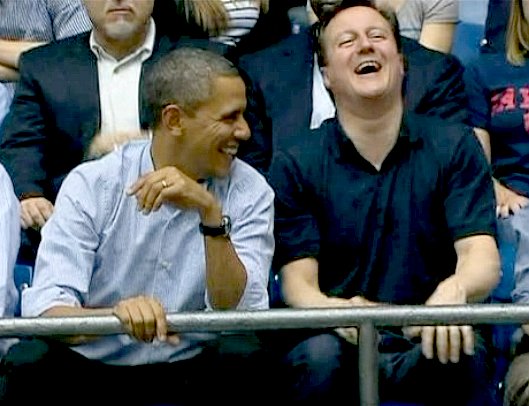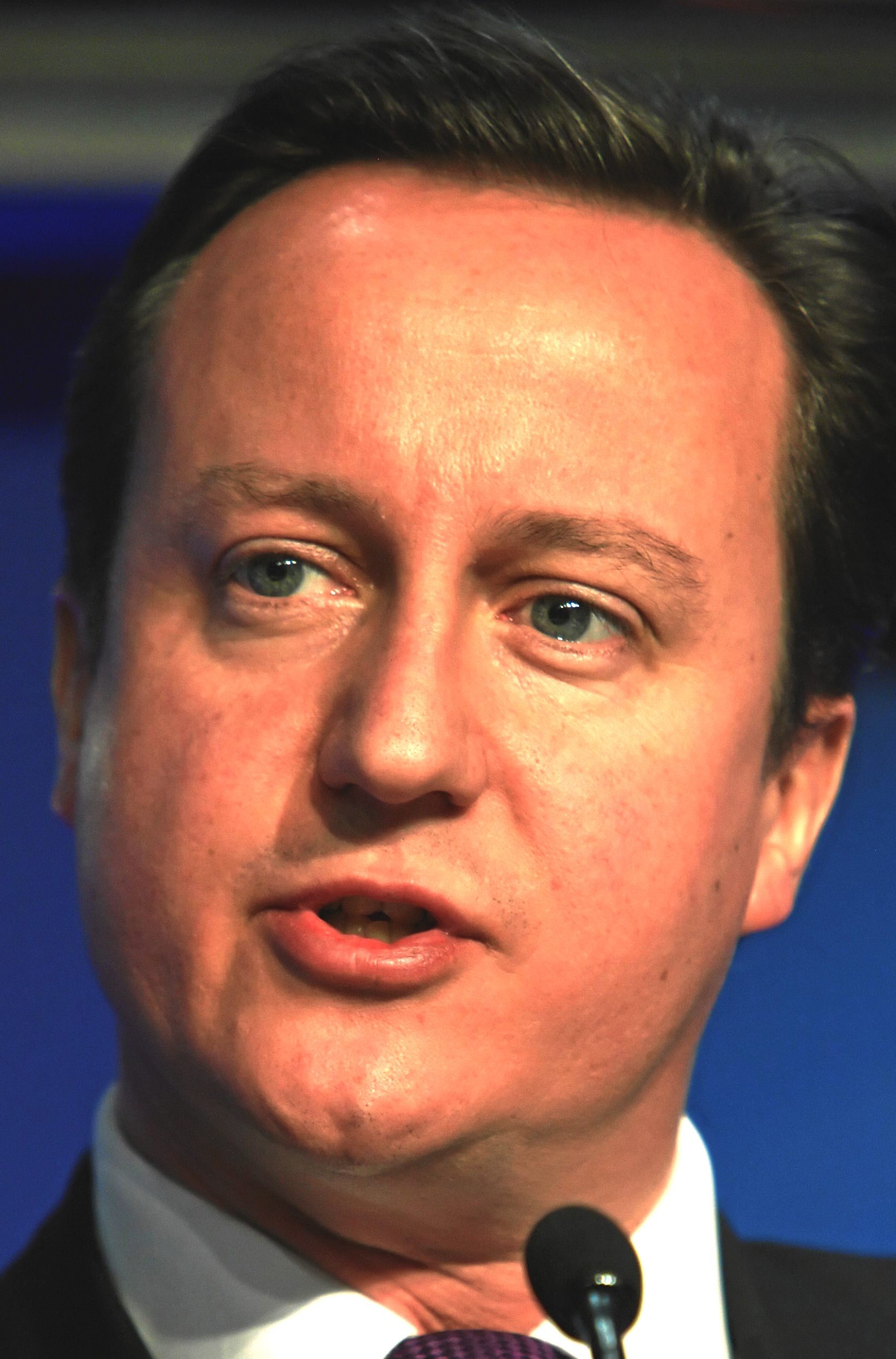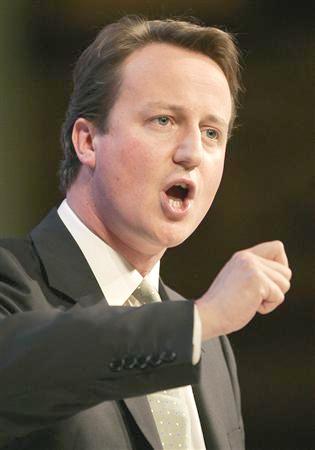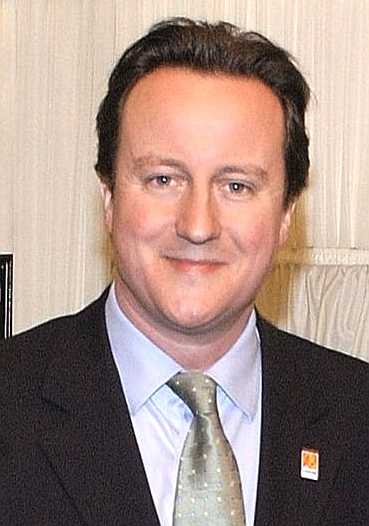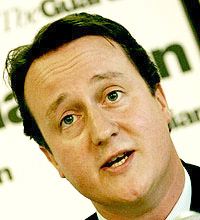|
|
|||||
|
UK and US economies are among the worst in the world. It's no laughing matter. Sustainable policies are all wrong leading to £1.33 trillion in debts as of 2014.
David Cameron is best known as the clever political chess player who (effectively) caused Brexit, so allowing Boris Johnson to get elected, Theresa May having fumbled the British Exit (Brexit) from the European Union.
He knew about Britain laundering drug money, but did nothing about it, making the United Kingdom the world's most corrupt country in 2022 - bereft of affordable housing, but crammed full of executive homes for overseas investors to rape our benefits system. In 2021 17 Conservative MPs called for Boris Johnson to enact laws to prevent the United Kingdom from falling ever deeper into the mire. A requirement under United Nations sustainability development goals SDGs, 16 and 17. Johnson, suffering from PartyGate allegations, and other sleaze, not least of which is being seen as the Clown of Europe. Not a bad thing in itself, except for lacking any real plan of action to recover from Covid and deal with the energy crisis - with cheaper renewable electricity, stemming from conflicting coal and oil policies, that have allowed climate deniers to warm our planet for many years past the point of knowing, and now potentially past the point of no return. These are the climate criminals that are wrecking the future for generations to come.
Cameron also mentioned about the possibility of having a Written Constitution, not being well received by Her Majesty Queen Elizabeth II, as the head of state of a dysfunctional Constitutional Monarchy, that has failed to address such issues. And now with the Royal Family in one heck of a pickle with Andrew Mountbatten-Windsor falling foul of the Sexual Offences Act 2003, having entertained the convicted paedophile, Jeffrey Epstein, and convicted trafficker (subject to re-trial and/or appeal in 2022), Ghislaine Maxwell, at Buckingham Palace and Balmoral. All very iffy on the trafficking and prostitution front, where social functions were used to locate and groom under age girls. This is something for Boris Johnson's administratin to deal with, should he remain in power long enough. Parliament, can no longer fail to address the dysfunctional royals. This must be a subject for discussion in open session in the House of Commons.
IMF Warns UK: in the latest Report May 2012 - Concluding Statement of the IV Consultation has a pessimistic tone. But, the agency believe that the country can help its own cause through stimulus and monetary policy. These are against the current trend of government austerity and a lack of intervention of any significance from the Bank of England.
The IMF analysts wrote:
We would question any policy that relies on decision made by investors, who usually rely on the qualities of leadership and understanding of problems, that a leader should have. To be able to do what the IMF are suggesting, Cameron's government would have to reverse course and replace its expense cuts, at least in part, with national stimulus. That would be well off the charted path promoted by Cameron and crew, and is unlikely to happen since the Conservative Party have no vision for the future that is genuinely sustainable. Of course this is nothing new. Most parties have no real chance of getting voted in by promoting truly sustainable world cementing policies. That would mean peace - and there's no profit in peace. Nobody would buy our weapons for starters. This probably applies equally to the US and Russia.
COALITION PARTY - You haven't really been elected if it's by way of having to form a coalition. What this means is that the country didn't want either one of the parties concerned. Not only that, but the Conservative are essentially bullying the Liberal Democrats into abandoning the policies that they would normally be loobying for, for policies that they would normally be lobbying against. The net result must therefore be a loss of representation for the people. So, what can the people do about it? Nothing much really in practice. If a a policy or statute breaches a person's human rights, they can take the matter to a Court such as the European Court of Human Rights. It's tenuous, but the financial mess we're in might be argued as a breach of Article 8 in that it interferes with your family life, or Protocol 1, Article 1, in that your right to peaceful enjoyment of your home has been shattered - which must be true - since we are in deep financial doodoo, causing stresses on family life and personal finances, that undermines family life.
What should have happened is a fresh campaign and then another until the country gets the policies that they really want - not policies that make the bank bosses and politicans rich, but policies that benefit the families in the country. Perhaps, long term policies that sit well globally.
David Cameron's budget shambles - Youtube
Let
us not forget that the Conservative
Party, formally the Conservative and Unionist Party, is a centre-right political party in the United Kingdom that adheres to the philosophies of conservatism and
British unionism. It is
the largest single party in the House of Commons with 306 MPs, the largest party in local government with 9,391 councillors, and the largest British party in the European Parliament with 25 MEPs. It governs in coalition with the Liberal Democrats, with party leader David Cameron as
Prime
Minister.
Is
it the fault of the people when there is no party popular enough to run
the country? Maybe and maybe not. We're sure that there is a niche for a
new party that might truly have a handle on global issues such that
domestic policies would be implemented to level up the playing field for
the ordinary man. Not communism, fascism or anything else extreme, but a
common sense approach to what the needs of the nation are for the future
and how to achieve that aim and maintain stability. BEWARE ABOUT TURNS WARNS HAGUE - Saturday September 2, 2007
One of our greatest living authorities on how to lose a general election by a landslide is William Hague. Of all the advice offered to David Cameron over this sweaty summer for the Tories, the wisest counsel has come from this predecessor. At the beginning of August, Mr Hague warned him not to do a Hague.
'The last thing to do is change tack, like I was accused of doing and to some extent did,' the shadow Foreign Secretary told the Daily Telegraph. 'We've fought two elections on tax, Europe and immigration and we know what the results of those elections were.' We certainly do. The Conservative party has surely tested to destruction the idea that general elections are to be won by abandoning the battle for the centre ground and taking the party to the right.
David Cameron
Mr Hague was two years into his leadership of the Conservative party when, panicked by poor opinion polls and beset by internal discontent, he careered off to the right. The result: growls of approval from the right-wing press in the short term and a landslide defeat for the Tories at the 2001 election. It took even less time for Michael Howard to travel the same trajectory to defeat. The result: cheers from the right-wing media followed by a third consecutive thumping for the Tories. In between Hague and Howard, there was the brief and tormented leadership of Iain Duncan Smith. He did not lead a lurch to the right. He was the lurch.
The Lurch was a dance of electoral death for his party that David Cameron swore he would never repeat. Unlike his three predecessors, he would stick with a strategy of modernisation and centrism rather than retreat to a narrow appeal to the Tory core vote. And yet he appears to have spent the past few weeks doing precisely what Mr Hague warned against. Since David Cameron's return from his truncated holiday, the Tories have chased headlines on immigration, Europe and tax cuts. When not doing that, he has concentrated on crime, the other topic that most animates the Tory right.
Just like his predecessors, this swerve has attracted bays of approval from the right-wing tabloids. 'At last!' cries the Daily Mail. 'Mr Cameron is talking like a Tory.' Right-wing Conservatives are delighted, Labour reads it as panic in the Cameron camp and Tory modernisers struggle to conceal their anxiety. In the immortal words of the great baseball coach, Yogi Berra: 'This is like 'deja vu all over again.'
If this is the product of fear, there are some obvious reasons why Mr Cameron should be in a panic. A decent advantage for the Tories in the opinion polls has turned into a good lead for Labour since Gordon Brown moved into Number 10. More personally wounding for the Conservative leader, when voters compare him with Mr Brown, he is losing the contest of the curriculum vitae. In March, when YouGov asked respondents to rate their potential leaders, Cameron beat Brown by five points as the best candidate to be Prime Minister.
Now Mr Brown is a real Prime Minister and Mr Cameron remains only a hypothetical one. When the same pollster asked who would make the best Prime Minister in August, the result was a crushing 24-point lead for Brown over Cameron. A sign of the panic attacks to which the Tories are now prone was the rumour which swept Conservative headquarters at the end of last week that Gordon Brown is about to announce an early election.
The Tory leader's allies do not deny that they made a deliberate decision to highlight some traditional Conservative themes, though they insist it was not so much designed to pander to the right of their party as to scare Mr Brown away from an autumn election. The Cameron inner circle also insist that he has not said anything especially new. 'He's not been saying anything he hasn't been saying for some time,' says one of the Tory leader's confidants. 'It's just that people are noticing it more.'
That's not just because of the issues he's chosen to highlight, but the way in which he has done so. The murders of Garry Newlove and Rhys Jones prompted from Mr Cameron three speeches on crime in the course of eight days. It is not of itself indicative of a rightward lurch that he chose to seize on these killings to suggest new laws and amplify his contention that Britain has a 'broken society'. After all, Mr Brown talked nebulously about more legislation and another 'crackdown'. It was the change in the Tory leader's language that was most striking.
David Cameron Conservative leader of the Conservatives
A year ago, in the speech which became caricatured as Hug a Hoodie, he argued for a sophisticated approach which would concentrate as much on the causes of crime as on its effects. He invited his audience to empathise with why young people became troubled. In a arresting phrase, designed to get the headlines that it did, he said: 'We have to show a lot more love.' This was not the sort of phrase that anyone would dream of hearing from Michael Howard. That's why he said it: to send a strong signal of his determination to change his party's outlook and approach.
His language this summer has been very different. These have been speeches that Michael Howard could well have delivered. Mr Cameron declared: 'Common sense suggests that with young people you need to hit them where it hurts.' From Hug a Hoodie to Hit a Hoodie.
Then, on Newsnight, he flashed at the right again when he talked about immigration being 'too high'. His performance on the programme was more modulated than the headlines it generated. He did not stray into dangerous language about Britain being 'swamped' or turning into a 'foreign land'. But the risk was well-described by Matthew D'Ancona, the editor of the Spectator, on the magazine's blog. 'The problem with suggesting that there is an acceptable quantum of immigrants, however politely expressed, is that it chimes with all that is worst in the party's history.' It revives what that highly astute Tory commentator calls 'the deeply damaging' suspicion that 'the party is inherently, ineradicably xenophobic'.
On top of that, John Redwood has been uncaged to argue for spending and tax cuts while David Cameron has broken his own rule that his party harms itself by 'banging on about Europe' by banging on about just that in a piece for the Sun. Sure, he has most voters - and even some Labour MPs - on his side when he calls for a referendum. The bulk of the public share Mr Cameron's Euro-scepticism. Plenty of voters will also agree with him about hitting young criminals and the levels of immigration.
Messrs Hague, IDS and Howard could often claim public support - except, alas for them, at general elections. The insight of the Tory modernisers was that focusing on crime, immigrants and Europe made them look like a narrow, right-wing sect fixated with their obsessions at the expense of the subjects that the public most care about.
'Several of us have been there when a panicked leader has lurched to the right,' says one member of the shadow cabinet. 'We know it is not a viable strategy. I think the centre can hold.'
David Cameron's inner circle protest that he is not doing a Hague or a Howard. They insist that this does not amount to a retreat into a core vote strategy and an implicit concession that the next election is already lost to Gordon Brown. This week, attention will be drawn to the Tories' plans for public services with a proposal to spend more on schools serving deprived areas. The week after, the environment will be in green lights with the report of the Tories' quality of life commission.
What might seem like balance to a Tory strategist can come over as just confusing to voters. If it is not a lurch to the right, then it is a lurch all over the place. This is partly because, as Mr Cameron's various policy commissions report, they are producing contradictory and sometimes diametrically opposed recommendations. The environment group wants a freeze on all airport building and higher taxes on flying; only the other week, the John Redwood policy group was arguing for a massive expansion in airports.
David Cameron had better decide - and quickly - how he wants to be defined in the public mind. He has previously projected himself as an upbeat, optimistic spirit, a leader who told his last party conference that he wanted to 'let sunshine rule the day'. That approach is easy to mock. Maurice Saatchi, the advertising mogul and former Tory party chairman, is one of those who sneers at 'nicey-nicey politics'. But the public responded much more positively to the Sunshine Boy than it did to the politics of Black Skies practised by his three predecessors.
Messrs Hague, IDS and Howard tried to win votes by painting a dystopian picture of Britain overwhelmed by immigrants, intrigued against by foreigners and overrun by criminals. Not recognising itself in the apocalyptic portrait painted by the Tories, Britain did not vote for them.
When David Cameron talks about 'anarchy in the UK', he imitates his predecessors. He begins to sound like the angry, old-fashioned, unreconstructed Tory he always promised not to be. He becomes Disgusted of Notting Hill grumbling that the country has gone to the dogs.
We know where that leads. If David Cameron has forgotten, he only has to ask William Hague.
I said don't ask - nearly got away with it though
David William Donald Cameron was born on 9 October 1966. As the date of this page he is the Leader of the Conservative Party and Leader of the Opposition in the United Kingdom, positions he has occupied since December 2005.
Cameron has been involved in British politics for much of his adult life. He read Philosophy, Politics and Economics at Oxford, gaining a first class honours degree. He then joined the Conservative Research Department and became Special Adviser to Norman Lamont (serving during Black Wednesday), and then to Michael Howard. He was Director of Corporate Affairs at Carlton Communications for seven years; the company chairman described him as "board material".
A first candidacy for Parliament at Stafford in 1997 ended in defeat but Cameron was elected in 2001 as Member of Parliament for the Oxfordshire constituency of Witney. Promoted to the Opposition front bench two years after entering Parliament, he rose rapidly to be head of policy co-ordination during the 2005 general election campaign.
Cameron won the Conservative leadership later that year after presenting himself as a young and moderate candidate who would appeal to young voters. His leadership had seen the Conservative Party establish a lead in opinion polls, but in the aftermath of a row over the party's policy on grammar schools and the ascension of Gordon Brown to the prime minister's office, Labour regained its lead in major polls.
David Cameron & Ed Milliband - Youtube
Education
Heatherdown Preparatory School
At the age of seven, Cameron was sent to Heatherdown Preparatory School at Winkfield in Berkshire, which counts Prince Andrew and Prince Edward among its alumni. A feature on Cameron in The Mail on Sunday of 18 March 2007 reported that in July, 1978 when Cameron was 11, Mrs Gordon Getty flew her son Peter, grandson of the oil billionaire John Paul Getty and four of his classmates to the United States to celebrate his birthday. Cameron was one of the classmates chosen to accompany him.
Eton
Cameron was educated at Eton College, a prestigious English public school, following his elder brother Alex who was three years above him; where his early interest was in art. Cameron hit trouble in May 1983 six weeks before taking his O-levels when he was named as having smoked cannabis. Because he admitted the offence and had not been involved in selling drugs, he was not expelled, but he was fined, prevented from leaving school grounds, and given a "Georgic" (a punishment which involved copying 500 lines of Latin text).
Cameron recovered from this episode and passed 12 O-Levels, and then studied three A-Levels in History of Art, History and Economics with Politics. He obtained three 'A' grades and a '1' grade in the Scholarship level exam in Economics and Politics. He then stayed on to sit the entrance exam for Oxford University, which was sat the following autumn. He passed, did well at interview, and was given a place at Brasenose College, his first choice.
After finally leaving Eton just before Christmas 1984, Cameron had nine months of a gap year before going up to Oxford. In January he began work as a researcher for Tim Rathbone, Conservative MP for Lewes and his godfather, in his Parliamentary office. He was there only for three months, but used the time to attend debates in the House of Commons. Through his father, he was then employed for a further three months in Hong Kong by Jardine Matheson as a 'ship jumper', an administrative post for which no experience was needed but which gave him some experience of work.
Returning from Hong Kong he visited Moscow and a Yalta beach in the Soviet Union, and was at one point approached by two Russian men speaking fluent English. Cameron was later told by one of his professors that it was 'definitely an attempt' by the KGB to recruit him.
Oxford
Cameron studied at Oxford University, where he read for a BA in Philosophy, Politics, and Economics (PPE) at Brasenose College. His tutor at Oxford, Professor Vernon Bogdanor, described him as "one of the ablest and nicest" students he has taught, whose political views were "moderate and sensible conservative".
While at Oxford, Cameron was captain of Brasenose College's tennis team. He was also a member of the student dining society the Bullingdon Club, which was originally founded as a cricket and hunting club but recently has obtained a reputation for a drinking culture associated with boisterous behaviour and damaging property usually in the private rooms of restaurants and pubs hired out to the club. A photograph showing Cameron in a tailcoat with other members of the club, including Boris Johnson, surfaced in 2007, but was later withdrawn by the copyright holder. He also belonged to the Octagon Club, another dining society. Cameron graduated in 1988 with a first class honours degree.
Family life
Cameron married Samantha Sheffield, daughter of Sir Reginald Sheffield, 8th Baronet on 1 June 1996 at Ginge Manor in Oxfordshire. Among the guests at the wedding were Jade Jagger, a friend of the Sheffield family. The Camerons have three children. Their first child Ivan Reginald Ian was born on 8 April 2002. He was born with cerebral palsy and severe epilepsy. Recalling the receipt of this news, Cameron is quoted as saying: "The news hits you like a freight train... You are depressed for a while because you are grieving for the difference between your hopes and the reality. But then you get over that, because hes wonderful!"
The Camerons also have a daughter, Nancy Gwendoline (born 19 January 2004), and another son, Arthur Elwen (born 14 February 2006). Cameron took paternity leave when his second son was born and this decision received broad coverage, including the BBC Six o'Clock News. Cameron has been urged by a Telegraph commentator to mention his family less in public.
Allegations of drug use
During the leadership election allegations were made that Cameron had used cannabis and cocaine recreationally before becoming an MP. Pressed on this point during the BBC programme Question Time, Cameron said "I'm allowed to have had a private life before politics in which we make mistakes and we do things that we should not and we are all human and we err and stray." Hours before the second ballot of MPs on 20 October 2005, he stated in an interview with Channel 4 that he had not taken Class A drugs since being elected to Parliament in 2001.
A 2007 book revealed his Eton punishment for cannabis use and claims Cameron continued to smoke the drug while studying at Oxford. According to friends he described his school experience as a "wake-up call".
House of Commons question backfires Youtube
LINKS and REFERENCE
Party
funding
31.03.2006:
Tories
name some lenders, and pay back others
This site is protected under Article10 of the European Convention on Human Rights and Fundamental Freedoms.
|
|||||
|
This website is Copyright © 1999 & 2023 Max Energy Limited, an environmental educational charity working hard for world peace.
|
